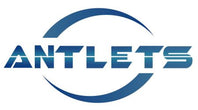Sitrans P320/420 pressure transmitters for remote safety
• Remote commissioning of SIL devices saves time and effort
• Maintenance costs reduced due to increased proof test interval
• High accuracy and fast response time increase’s process efficiency
Siemens presents Sitrans P320/420, first pressure transmitter on the market to feature remote safety handling reducing commissioning time in applications requiring functional safety. Via Simatic Process Device Manager (PDM) the safety integrity level (SIL) devices will be commissioned: rather than manually attending to each individual device across the facility, operators can commission transmitters from the control room. This next generation of pressure transmitters was developed according to IEC 61508 standard for the use in SIL 2/3. Significantly lowering maintenance costs could be expected as these transmitters have an increased proof test interval over other devices on the market.
The HART7 Sitrans P transmitters are ready for plant digitalization, giving users in depth control and analysis through new data logging functions and event control. The devices’ reduced response time increases process efficiency by speeding up the control system’s response to changing process conditions. Sitrans P320/420’s user-friendly features also include a new larger and improved display, showing users the device’s status at a glance. Setup is convenient and quick thanks to four button programming, Namur NE107 support and a quick start wizard.
With measuring ranges from 8 inH2O to 10,000 psi, depending on the device, these new additions to Siemens pressure portfolio provide reliable results even under extreme conditions. The devices are especially suited for applications where safety is critical: in industries such as chemical, oil and gas, and power generation. The Sitrans P320/420 can also be implemented in all other industries.
Siemens presents Sitrans P320/420, the first pressure transmitter on the market to feature remote safety handling reducing commissioning time in applications requiring functional safety.
 English
English Arabic
Arabic


 Chat with Us
Chat with Us
